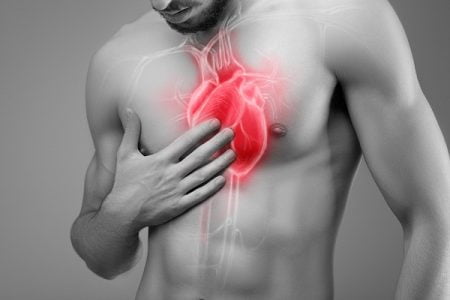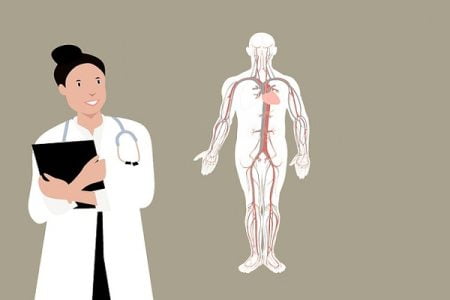How Is Angina Diagnosed?
- Updated on: Jun 26, 2024
- 3 min Read
- Published on Apr 19, 2021


To diagnose angina, your doctor will begin by doing a physical exam. He or she will ask questions about your symptoms, medical history, and family history.
He will also ask about other risk factors such as whether you smoke, consume alcohol etc.
He or she also will also want to know whether your angina is stable or unstable. If it’s unstable, you will require emergency medical treatment to prevent a heart attack or stroke.
Your doctor will try to find answers for two things:
- What is causing the chest pain (angina)
- Whether you’re having or you had or about to have a heart attack
Questions your doctor will ask
Your doctor may ask questions, such as:
- What causes the pain or discomfort? Is there any particular trigger?
- What relieves the pain?
- What does the pain or discomfort feel like? Do you feel heaviness or tightness or pressure in chest?
- How often does the pain occur?
- Where in the body do you feel the pain?
- How severe is the pain?
- How long does the pain last?
Tests for diagnosis of angina
There are several tests that your doctor may perform to help confirm whether you have angina or rule out other options.
EKG (Electrocardiogram)
An EKG is a painless test that detects your heart’s electrical activity. The test shows how fast your heart is beating. An EKG also records the electrical activity and the strength and timing of electrical signals as they pass through the heart across pathways.
Your doctor can also locate signs of heart damage due to an underlying disease such as coronary heart disease (CHD) or a heart attack. But, some people who have angina may still get normal EKGs.
Stress testing
Angina is sometimes diagnoses when your heart is working harder such as when you are doing a physical activity.
During a stress test, you are made to exercise by walking on a treadmill. Your ECG readings are recorded while exercising. If you’re not able to exercise, your doctor may give drugs that makes your heart pump harder.
Chest X-ray
Images of your heart and lungs are taken to look for other problems that might cause your symptoms. Your doctor may also find if you have an enlarged heart, through a chest X-ray.
Coronary angiography
Coronary angiography is recommended if it is suspected that you may have CHD. A special dye is used before the procedure and x rays show the inside of your coronary arteries.
The dye is injected into your coronary arteries. Your doctor will use a procedure called cardiac catheterization. A thin, flexible, long tube called a catheter is passed into a blood vessel in your arm or groin area.
X rays are taken while the dye is injected through your coronary arteries to help the view of the flow of blood through your heart and blood vessels.
The procedure is done in a hospital. You are given local anesthesia. It usually causes little or no pain.
Cardiac computerized tomography (CT)
In a cardiac CT scan (CT angiography), you lie on a table inside a CT scanning machine. An X-ray tube inside the machine rotates around your body and captures images of your heart. The images indicate if any of your heart’s arteries are blocked or if your heart is enlarged.
Blood tests
Your doctor may recommend certain blood tests to determine the level of certain proteins in your blood. Studies suggest that high levels of these proteins in the blood may increase the risk for heart diseases.
Myocardial perfusion scintigraphy (MPS)
An MPS is used to determine if a person is unable to exercise. A small amount of a radioactive substance is injected into your blood. A camera is used to track the substance as it passes through your blood vessels to the heart. Your doctor can study the flow of blood to your heart by this test.
The test is usually carried out both at rest and when you’re doing physical activity (exercise). If you’re unable to exercise, a medicine can be given to make your heart work harder.












